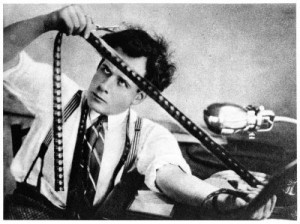In the last post, I offered up a clip featuring Bob Darden speaking about why so much gospel music is missing.
The clip I posted runs almost four minutes. I had a longer cut, but I thought it was running too long. I thought I could shorten the Capitalism bit. Here’s his unedited answer. The strikethrough text was cut from the clip.
Capitalism maybe a part of the problem.
There’ssome major labels now that we know own some of the big former labels,some of thosevast catalogs, and yet they’ve released maybe a dozen CDs, compilations in 20, 30 years. We have talked to the record label execs, and they’ve saidwhether it’s been off the record or on, and off the record they’re a lot more honest about it, is,we’ve got it, it may be valuable some day, it’s not valuable right now. If we put it out, it would sell 10,000 copies at the most, and that’s not enough money.This is our property, we bought it legitimately, why should we give it away when maybe down the road some other label is brave and all of a sudden sets off a frenzy of gospel music buying, well then we’ll look pretty stupid if we let this music go.“You’re not letting it go, I’m just making a copy. I’ll never re-release it.”
“I gotta go. I have to do lunch with Sinatra.”
I loved the Sinatra line and I thought it showed Bob’s wonderful sense of humor, but I had to cut it for the sake of the bigger picture. When you’re editing, it’s easy to say, “That just a few seconds, we can leave it in.” But the reality is not only do those few seconds add up, but in a segment like this clip, those few seconds can be the difference between keeping the audience interested and losing them. The Sinatra line is great, but it depends on what came before it to work, and in the context of this clip, it took too much time to get there. Life can have a more leisurely pace than movies.
I also completely eliminated another reason Bob mentioned.
One particularly interesting label, a small label, but one with a lot of historic significance, nobody knew where it was. So Bob Marovich and a few other of the big collectors got together and they spent a lot of time trying to find out where this particular record label was. And they traced all the way to Germany. And the German subsidiary of Seagrams, the liquor manufacturer, was the last person known to own this music. So they found a fellow who spoke German real well, and they called the P.R. people and got the runaround and finally got to somebody who knew what they were talking about and he said, “Why yes, I see in our books that we own this record label.”
And they said, “Wonderful. Can we make a copy? Where would we go to get it?”
He said, “Well, the records show it’s in America.”
“Great! Just tell me where in America.”
“No, no. That’s all it says. America.”
Somewhere in America, in a warehouse, I hope, I hope it’s not in the bottom of the Hudson River, there is this entire set with the masters of this very valuable but very small gospel record label.
This seemed like something straight out of Brazil.
I wavered on whether to cut it or keep it. I thought it said a lot about multinational corporations, and anytime I can make a point and get a laugh, I’m all over it. But keeping it would bring this section close to five minutes long. So to the floor it went. At least for now. Like I said, it may make it in the final film.
These are the kinds of things editors and directors spend hours discussing.

Haroon
Really good post, really reminds me that creating is not just about making, it’s also about deleting.
David Licata
Well put, Haroon!
There’s a quote by Dizzy Gillespie I live by: “It’s taken me all my life to learn what not to play.” Put that one, and “Kill your darlings,” on your corkboard.